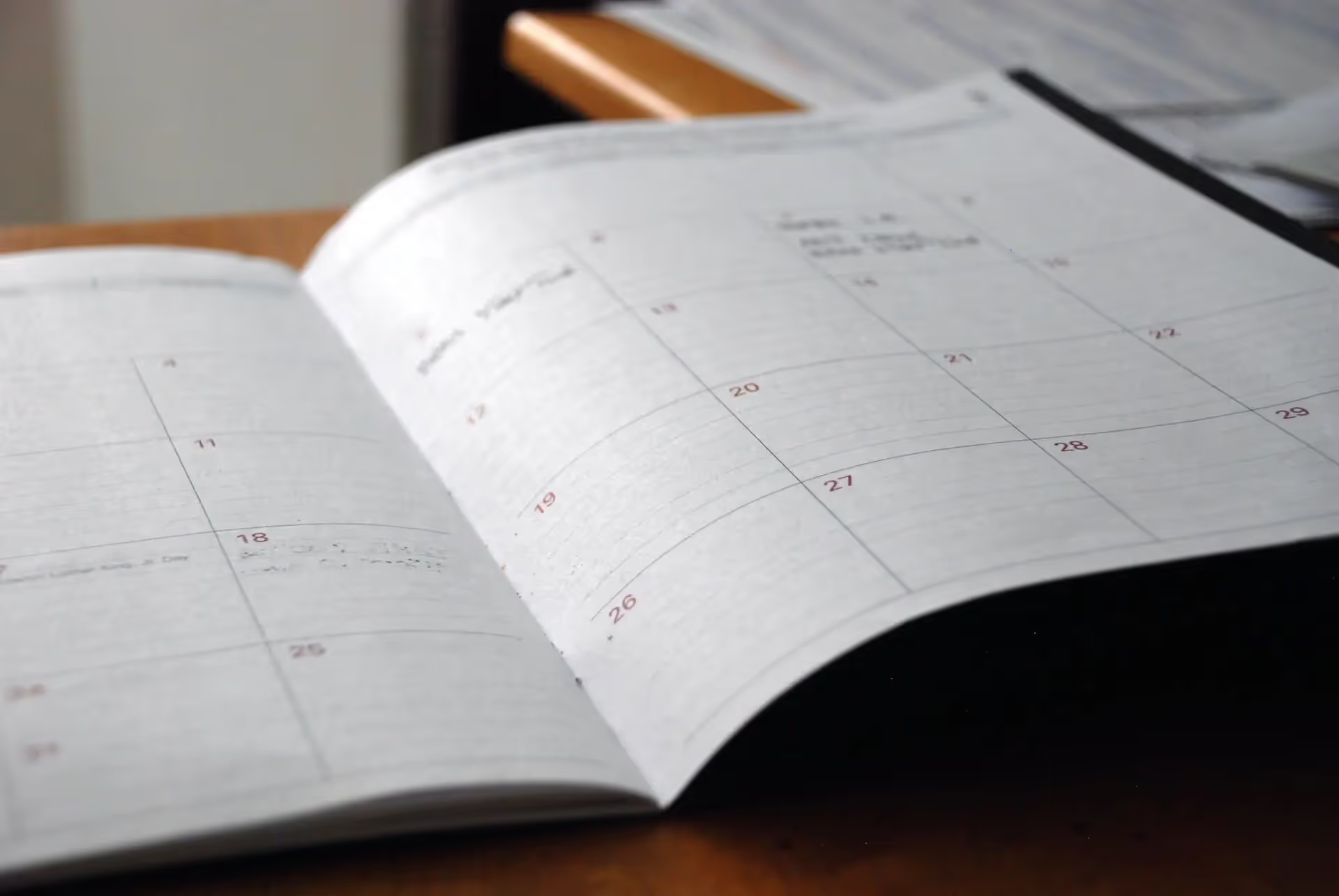As an accountability coach, there's this one question from new clients that keeps popping up like a warm piece of toast: "As someone with ADHD is there any way you can help me improve my productivity?" and the answer is a resounding "YES!". Actually, some of my most productive clients have ADHD! I know, might sound odd but when you really think about it it makes a lot of sense, let me explain.
ADHD can be like owning a super-fast sports car – if you don't know how to drive you'll be caught in an endless bumper car game trying to swerve away from every obstacle that pops up, but once you do learn how to steer that powerful engine, nothing can stop you!
So I'm here to share some tips that work with my clients and that can help you too when unlock your productive superpowers and lead you to success!
And a heartfelt thanks to my wonderful client, Ameya, who inspired this article. You're a shining example of embracing ADHD with determination and a fabulous spirit.

Understanding ADHD
ADHD, short for Attention Deficit Hyperactivity Disorder, is kinda like having a million tabs open in your browser and someone else keeps flipping through them. People dealing with ADHD often experience feelings of innatention, hyperactivity, and impulsivity. This can show up as struggling to focus on one thing, feeling overly energetic, or making snap decisions without thinking them through. The causes of ADHD can vary from person to person: it can be a mix of different factors, including factors that happen during pregnancy or birth, as well as some genetic links.
Even though it typically starts in childhood, ADHD doesn't just pack up its bags and leave when you become an adult. Quite the opposite, for many people, it's a lifelong partner, sometimes making stuff like school or work challenging. The good news is that with the right approach, it's manageable and it can also be used to your advantage!
While there's medication to help manage this condition, you can also personalize the approach, which can include therapy, lifestyle changes, and even some cool brain-training exercise- sort of like giving your brain its own personal gym,you just have to look for the right tools!
Why is it hard to get things done when you have ADHD?
Having ADHD is having a tricky relationship with your brain's control center, what we call "executive functions". These functions are the ones that help you do important stuff, like remembering things, switching between tasks, and regulating emotions. When you have ADHD, behavioral inhibition (AKA the ability to pause before reacting) can get a bit wobbly, which can spill over to other executive functions.
For example, working memory, which is like your brain's sticky notes, might not stick as well. Self-regulation (the ability to manage your moods and motivation) could become like trying to tune a finicky radio. Certain functions in our mind, such as internal speech (the little voice in your head guiding you) and reconstitution (breaking down and rebuilding behaviors), might face some difficulties.
Good thing there are strategies to handle these challenges and actually make the most of them!

Positive Psychology in Overcoming ADHD Challenges
Now a little bit about positive psychology (the pillar of our coaching).
Positive psychology is that ray of sunshine in the world of psychology, highlighting strengths and happiness instead of only addressing problems. It's like being on a road trip, where instead of solely focusing on avoiding potholes, you also appreciate the scenery! For ADHD-ers, this can really be a game-changer.
This branch of psychology also emphasizes the importance of fostering positive emotions, which can help with the challenge we've already talked about before - emotional regulation, which is something people with ADHD face. Research shows that positive emotions can broaden your thinking and help you come up with creative solutions, which can be particularly useful for folks with this neurodivergence who may often feel overwhelmed or anxious.
Another effective strategy is pinpointing your strengths and structuring tasks around them. For instance, if you've got ADHD and you're awesome at thinking on your feet, maybe a dynamic job that keeps you on your toes would be more engaging than a slow-paced desk job that has repetitive tasks and the same routine day in and day out.
11 Practical Tips to Stay Productive With ADHD
If you're a fellow ADHD-er and are looking for ways to stay on top of your game and make some actual progress, here's a plethora of options to choose from!
Remember, there's no one-size-fits-all solution, so feel free to experiment and see which of these ideas and nuggets of wisdom best suit you.
1. Prioritize to Maximize
Alright, time to talk strategy: Prioritizing tasks is like being the conductor of your own train, deciding which stations are essential stops on your daily journey. It's the difference between a wild, off-track adventure and a smooth, well-planned ride.
You see, ADHD brains tends to bounce around between tasks, struggling to discern what's urgent from what's important. By learning to prioritize, you essentially train your brain to recognize which tasks deserve your immediate attention and which can safely be left for later. This helps to reduce the feelings of overwhelm and increase your overall productivity. You start to make smarter choices about where to invest your energy, leading to less exhaustion and more accomplishment.
It's not about visiting more stations; it's about ensuring you hit the right ones. Imagine saving your steam for the big city destinations and allowing the small town stops to wait for a later journey. So, ready to take charge of your train? Choo Choo! Let's get to it!

2. Break Down Tasks
One task at a time
Did you know that multitasking is a very costly technique when it comes to productivity? This is especially true in this context, for people with ADHD tend to struggle with context-switching. So our pearl of wisdom is: break down your tasks. For people with ADHD, long tasks can seem like a huge, insurmountable mountain, so when you break it down into bite-sized pieces, you're creating manageable foothills. Remember, Rome wasn't built in a day, and neither are most tasks. So focus on one specific task, finish it, and then move on to the next task.
Short breaks
Once you've knocked out a task, take a little breather. Now I know, navigating through daily tasks with ADHD can resemble a marathon, where transitioning between tasks can be challenging, but strategically placed rest breaks can help recharge your focus. But follow me in the next paragraph, because what I'm about to say next is what is going to make all the difference here!
'Productive' breaks are confined, either by time (eg: a 10-minute stretching), or task completion (like finishing organizing your desk). However, something you have to be very aware of is 'distraction-prone' breaks, like endless going on your phone to check reels or getting distracted by a show on TV, which are open-ended and can lead to problems focusing. So, make sure to plan your breaks with intent and make the most of your resting time!
Rewards
ADHD often comes with a strong preference for immediate over future rewards, which can lead to what might seem like procrastination. However, this "live in the moment" mindset can also be a strength! You can leverage this tendency with a few tricks to make boring tasks more stimulating and rewarding. Try turning chores into fun tasks or a game and rewarding yourself with a treat after finishing that report. Harness your brain's need for stimulation, and make it work for you! That way, your brain gets the instant gratification it craves, while you're also making progress on your to-do list. Harness your brain's need for stimulation, and make it work for you!

3. Avoid the trap of perfectionism
Have you ever felt like a squirrel chasing perfection like it's the last acorn of the season, especially when it comes to being productive? It's like trying to keep your room clean during a whirlwind, ain't easy, right? But it's ok, we're in this together!
Here's the thing. Chasing after perfection is like trying to catch a soap bubble – it's alluring but disappears the moment you touch it. With ADHD, we sometimes fixate on that perfect bubble, draining our energy in the pursuit. Instead, let's aim for that 'pretty good' bubble. It doesn't sound as shiny, but it’s real and we can actually hold it. Productivity isn’t about a perfect score, it’s about getting the job done in a sustainable way, and doing it 'pretty well' is absolutely okay!
Ask yourself, is it better to do one thing perfectly and exhaust yourself or to do it 'well enough' and still have energy for a victory dance and the next thing that shows up? Remember, it's not all about being flawless. Having a rigid mindset can make us overlook the small wins and ramp up our stress levels. The secret here is being gentle with yourself, my friend. So, let’s drop the 'P' word (Perfection), and replace it with the three 'P's - Progress, Patience, and Positivity. Keep the ball rolling.












